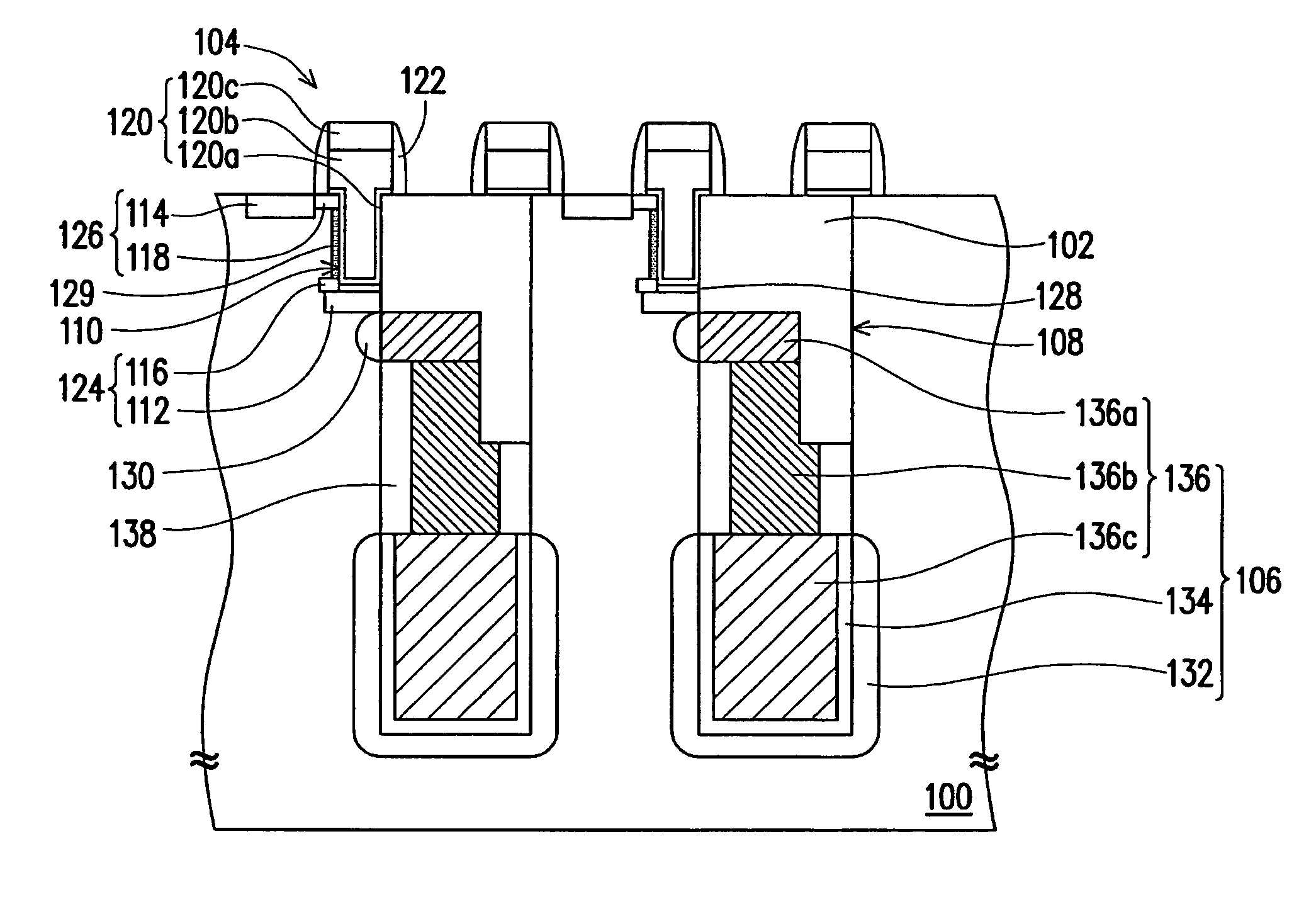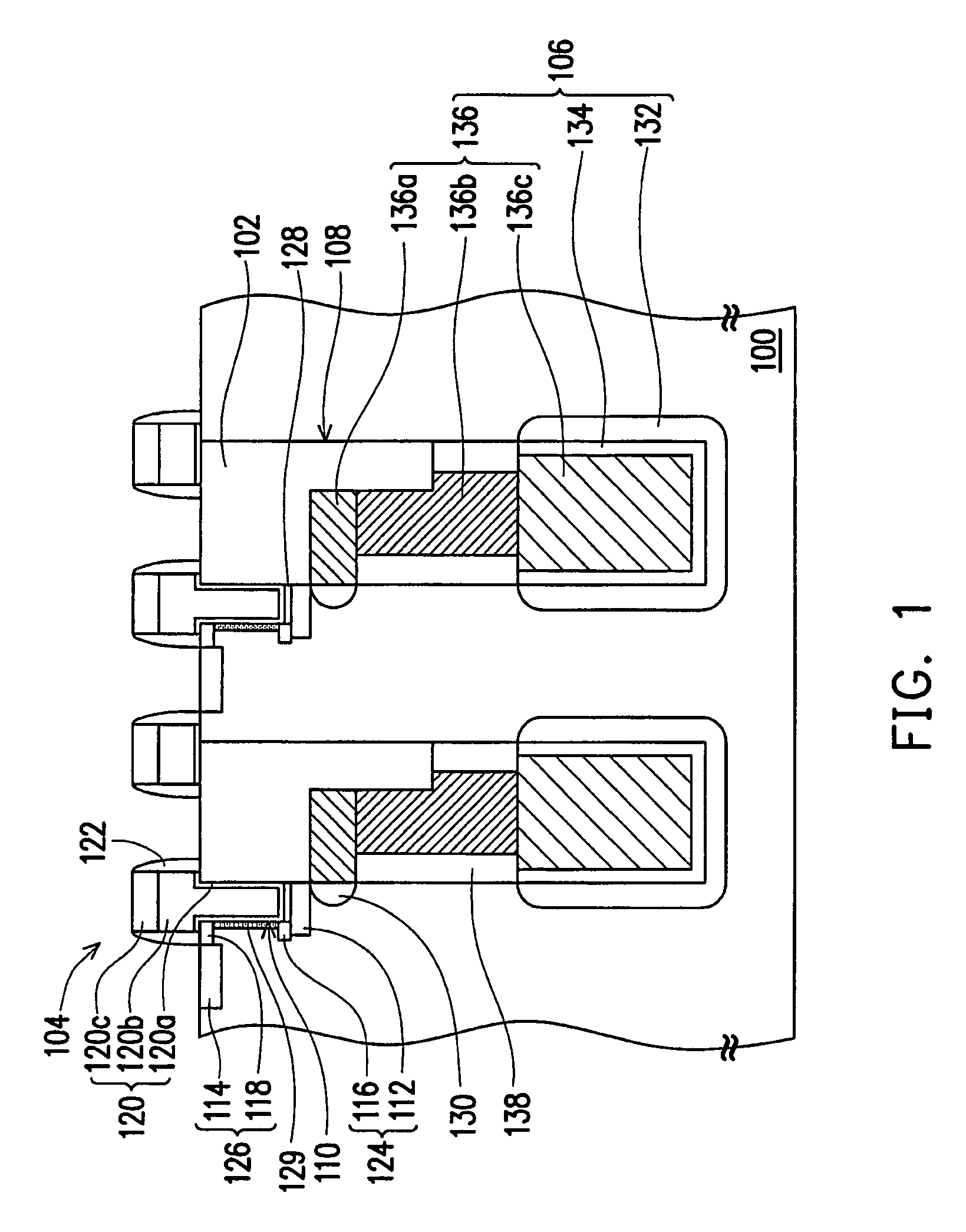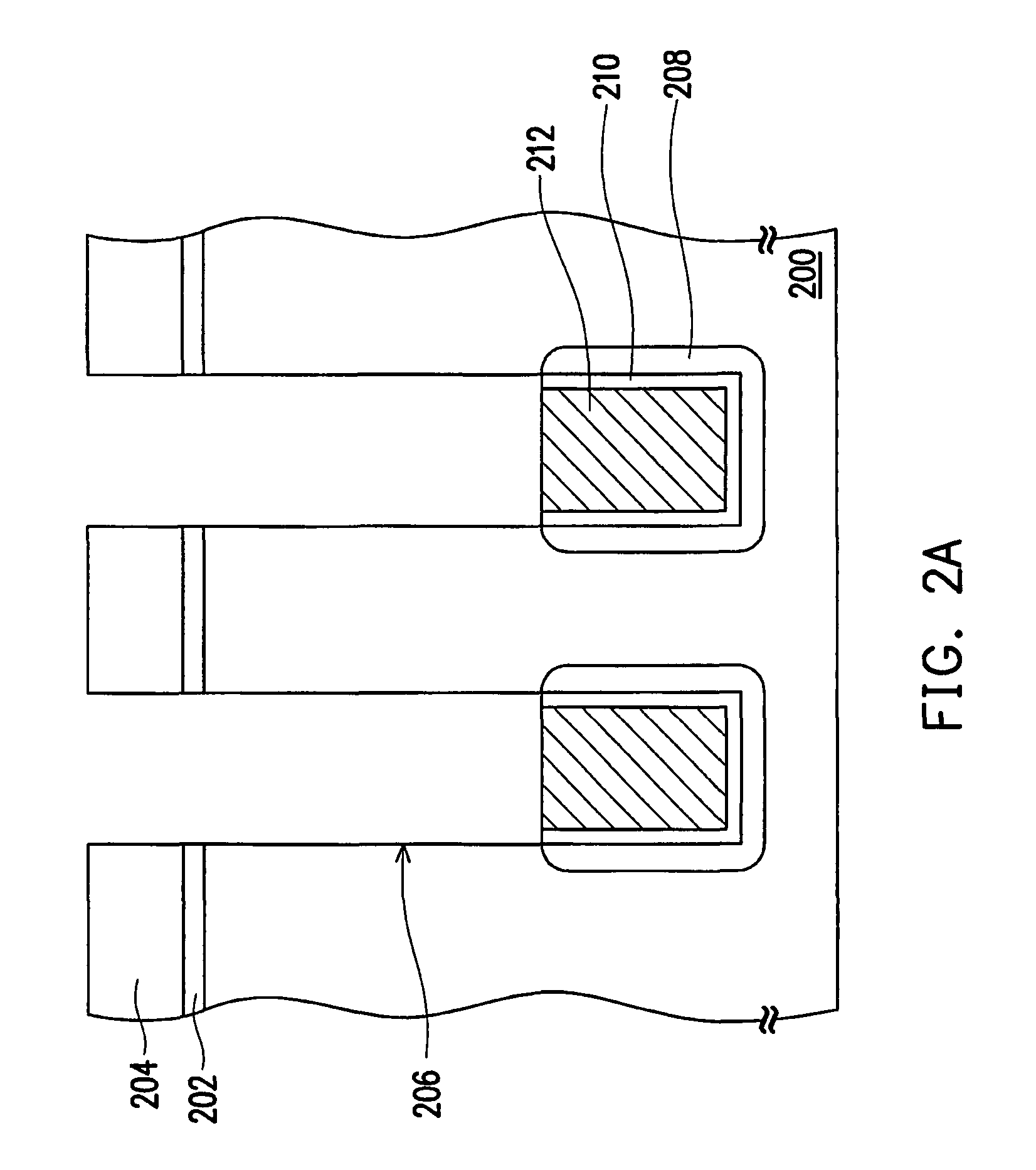Dynamic random access memory
a random access and memory technology, applied in the direction of semiconductor devices, electrical devices, transistors, etc., can solve the problems of increasing leakage, reducing the on current of the transistor, and affecting the efficiency of the components, so as to improve the effect of components
- Summary
- Abstract
- Description
- Claims
- Application Information
AI Technical Summary
Benefits of technology
Problems solved by technology
Method used
Image
Examples
Embodiment Construction
[0028]Reference will now be made in detail to the present preferred embodiments of the invention, examples of which are illustrated in the accompanying drawings. Wherever possible, the same reference numbers are used in the drawings and the description to refer to the same or like parts.
[0029]FIG. 1 is a cross-sectional view of a DRAM according to an embodiment of the present invention.
[0030]Referring to FIG. 1, the dynamic random access memory (DRAM) includes a substrate 100, an isolation structure 102, a buried strap 130, a vertical transistor 104 and a deep trench capacitor 106. The substrate 100 may be a silicon substrate. A deep trench 108 and a trench 110 are disposed in the substrate 100. The deep trench 108 is located on one side of the trench 110, and has a depth greater than that of the trench 110. The isolation structure 102 is disposed on the deep trench capacitor 106 to define an active region. The isolation structure 102 may be a shallow trench isolation structure, and...
PUM
 Login to View More
Login to View More Abstract
Description
Claims
Application Information
 Login to View More
Login to View More - R&D
- Intellectual Property
- Life Sciences
- Materials
- Tech Scout
- Unparalleled Data Quality
- Higher Quality Content
- 60% Fewer Hallucinations
Browse by: Latest US Patents, China's latest patents, Technical Efficacy Thesaurus, Application Domain, Technology Topic, Popular Technical Reports.
© 2025 PatSnap. All rights reserved.Legal|Privacy policy|Modern Slavery Act Transparency Statement|Sitemap|About US| Contact US: help@patsnap.com



